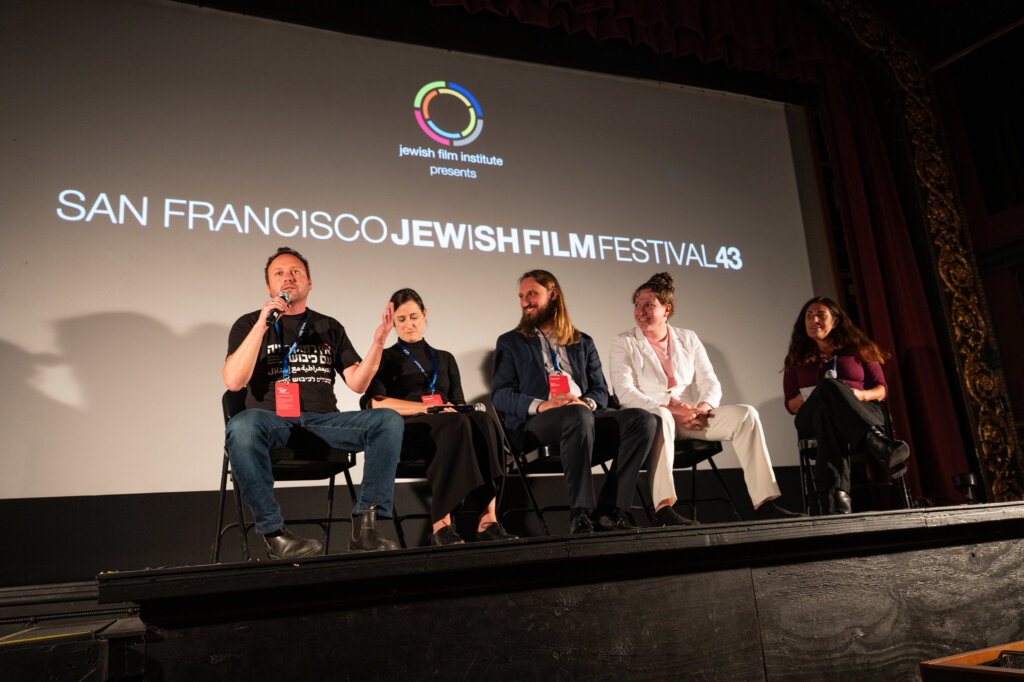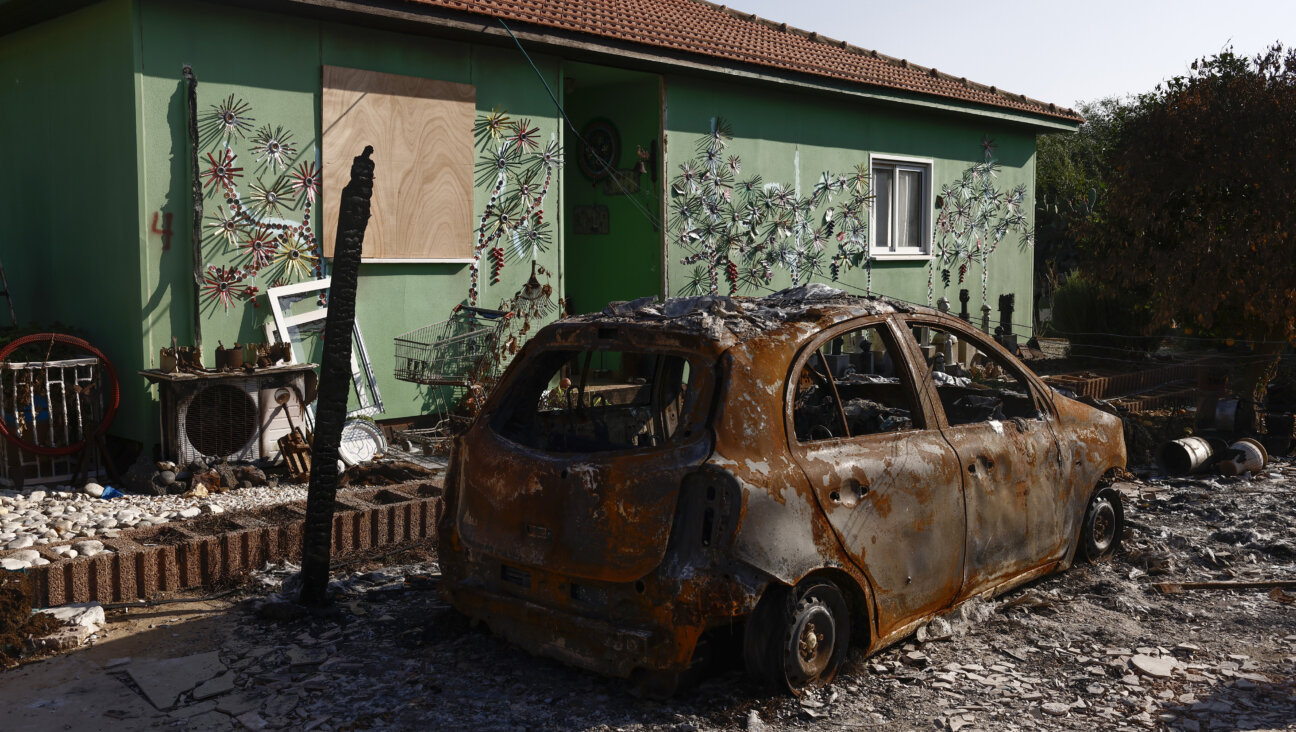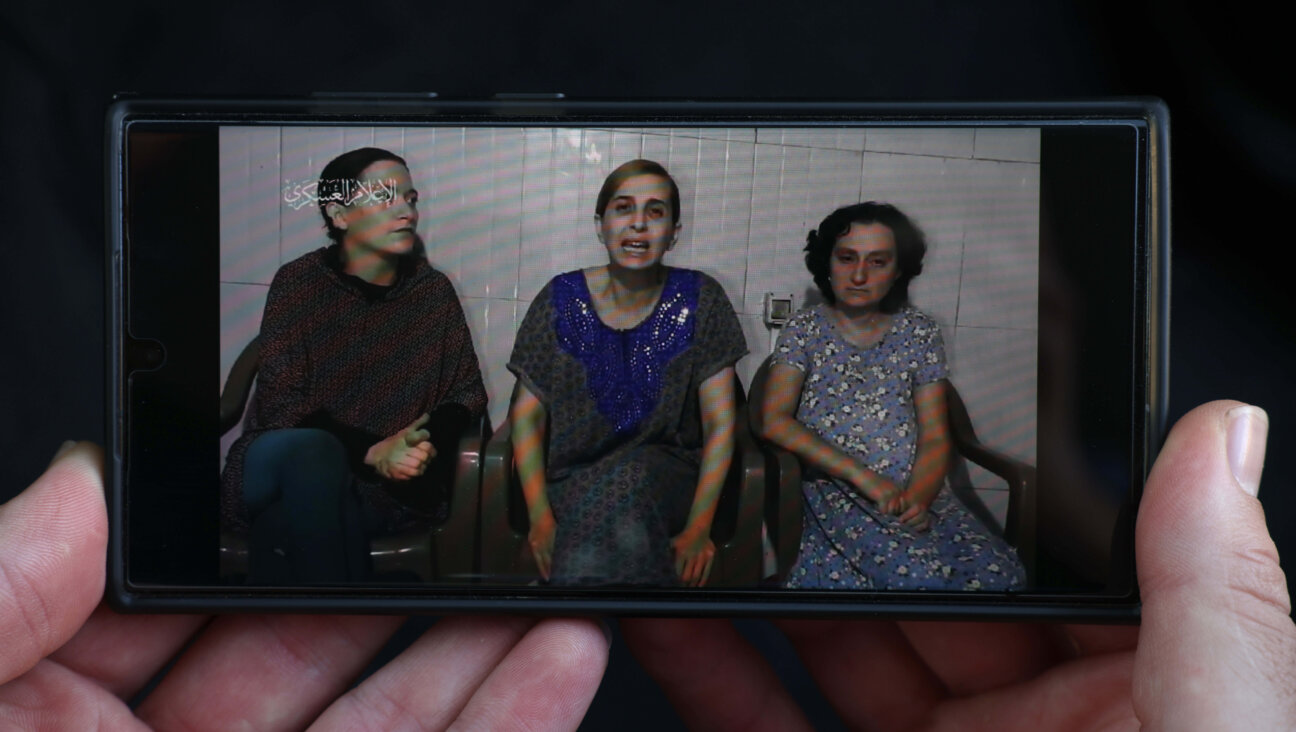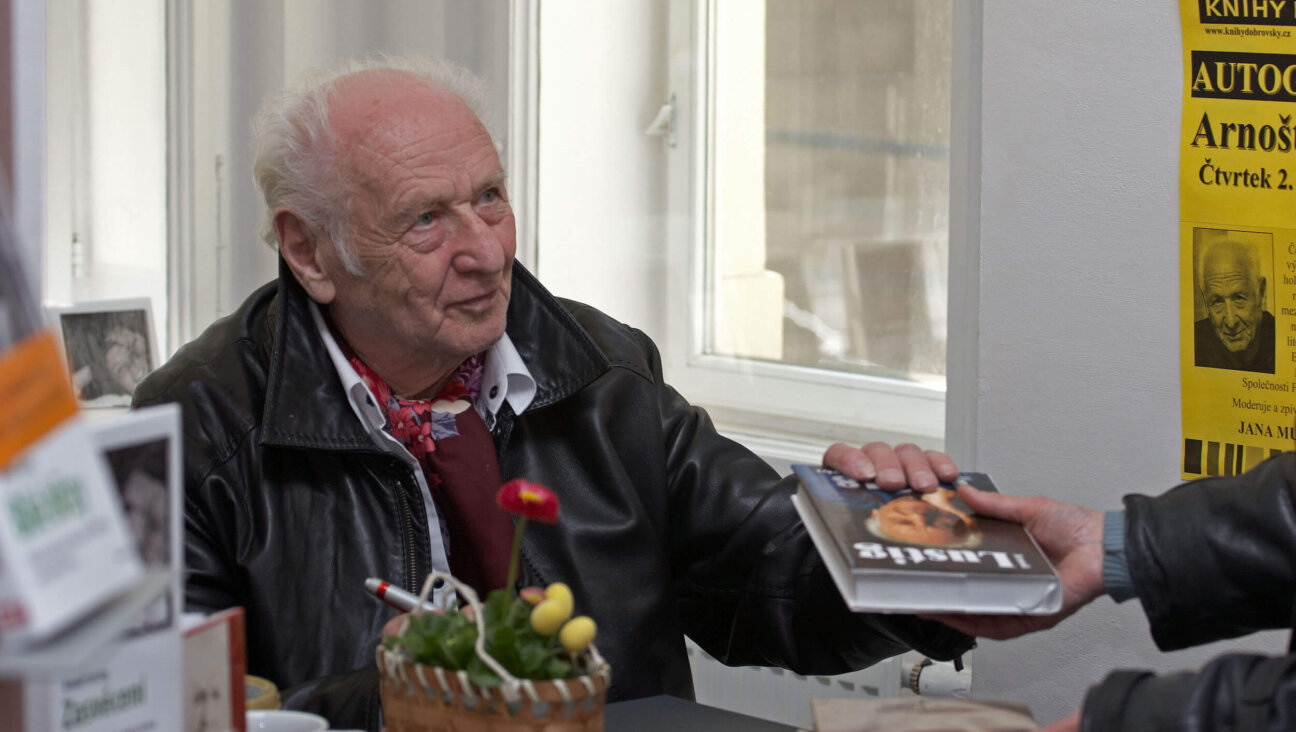Cancel culture comes for a documentary about Jews critical of Israel
‘Israelism’ exposes attempts to control the narrative about Israel. Now those same forces are coming for the film

Graphic by Angelie Zaslavsky
Since the documentary film Israelism was released in March, it has been screening across the country on college campuses, often at the invitation of Jewish or Israel studies departments and professors. The film, which follows two young American Jews attempting to reconcile their connection to Israel with the violent realities of Palestinians, details efforts to control criticism of Israel, often by attacking it as antisemitic. And in the past few weeks, the film has become the target of exactly the kind of coordinated campaign it exposes.
“Israelism is not educational. It is not inclusive. It is not portraying an interesting viewpoint,” one of many emails sent to college presidents and deans says. “The movie openly gives justification to those shouting ‘Kill the Jews,’ ‘Globalize the Intifada,’ etc.”
“It is precisely this nuanced antisemitism that fuels the flames of hate and brainwashes young minds,” it concludes, urging the colleges to cancel the film’s screening.
The emails are largely the same text, sent with a single click. Messages with URLs disseminated through Facebook groups, WhatsApp chats and text messages allow people to send a pre-written email to any of eight universities planning to show Israelism, including Oberlin College, Yale and the University of Pennsylvania.
The level and organization of the efforts outstrips any outrage over other film screening; documentaries critical of Israel such as Tantura, Jenin and Gaza’s Fight for Freedom, which have been shown on a few campuses including Haverford and Bryn Mawr, have not experienced outside, coordinated pushback.

This campaign succeeded in canceling a screening of the film on Tuesday at Hunter College; the college’s president, Ann Kirschner, said in a statement, that the institution supported “constructive dialog” but was concerned about safety, referencing swastikas that had been drawn on a campus building.
“Obviously that’s extremely offensive and hurtful to us as Jews, to have us compared by an institution to someone painting swastikas,” said Sam Eilertsen, one of the two filmmakers. “Especially since the film itself has a whole section about the rise in antisemitism in the U.S.”
Mothers Against Campus Antisemitism, a Facebook group with over 50,000 members campaigning against the film, celebrated the victory at Hunter. But the next afternoon, the college’s senate, composed of students and faculty, passed a resolution demanding that the screening be rescheduled this month. A spokesperson for the college said that rescheduling the film was “always the plan.”
The pushback against the screenings comes largely from outside the campuses in question. In the Facebook groups organizing against the film, commenters affirm that they have sent emails to all eight schools, though many of them don’t have children attending those schools. Many admit that they have not seen the film, or have only seen the trailer.
“The opposition is not from students, the opposition is coming from just people on the internet,” said Eilertsen.
Pushback is par for the course for anything critical of Israel, and Eilertsen said that some theaters that screened Israelism reported that they’d received calls from the Israeli consulate asking them not to show it. When the film showed at UCLA in June, professor Dov Waxman, the director of the university’s center for Israel studies, made a private post on Facebook saying that he’d come “under intense pressure from numerous organizations and individuals” over his decision to host the screening, including calls asking “major donors” to the center he leads to push for him to get him fired.
But, in terms of scale, organization and vitriol, the campaign since the war has been unlike anything the film’s team had experienced.
“The film was always going to be controversial for some people,” said Libby Lenkinski, a consulting producer on the film and the vice president for public engagement at the New Israel Fund. (Lenkinski also writes the Israel Therapy column for the Forward.) But, she said, the film’s mission had become more complicated, and controversial, since the Hamas attack, leading to more intense criticism.

Lenkinski said she can imagine how, for some Jews, the film’s discussion of Jewish institutional attempts to control the narrative around Israel “feel close to assertions that many Jews are increasingly uncomfortable about,” ideas that could conceivably play into antisemitic conspiracies.
“Like, what is the level of power and control that Jewish institutions and organizations have in this country? How much power does the Israeli government actually have in this country?” she said. “I think that all of that is very, very heightened since Oct. 7.”
The filmmakers were well aware of the rising tensions and uptick in antisemitism in the wake of the war, and they took some time off after Oct. 7 to assess how to manage the screenings, ensure discussions remained productive and give themselves space to process.
“We wanted to make sure we were messaging everything right,” said Eilertsen. “And we weren’t really in an emotional place to be traveling to screenings.”
The filmmakers and producers said conversations at recent screenings have been respectful and positive, and they hadn’t witnessed violence, physical or verbal, nor antisemitism during the screening or discussion afterward. In fact, they reported that students found the film to be a welcome respite from black-and-white conversations dominating their campuses.
“We had great concerns after Oct. 7 showing the film,” said Gili Getz, one of the film’s executive producers, of worries about antisemitism. “To our surprise, it fostered none of that. It fostered nuanced complexity, it fostered spaces where people can navigate these questions.”
“I can’t think of anyone who has actually seen the film who has said straight up: ‘This is antisemitic,’” Eilertsen said.

















